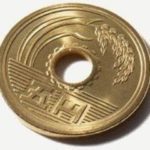If after having read about the Ticos‘ idioms, you were left wanting to know more about the jargon that Costa Ricans use to refer to certain things or facts, then let’s take a look at some of the most common tico terms:
-
Mae
It is used to refer to a person who is easy to deceive, although it is also an expression used to refer to any friend, it still has a somewhat derogatory meaning.
The original term was maje and belonged to the slang of the cobblers by the time of the 1920s.
It was used to indicate to the apprentices that they had to squeeze (hammer) the soles on an iron plate to make them more resistant.
Many of these apprentices were taken to joke when making them hammer rubber heels that did not hold the desired consistency, reason why the term became the reason for mockery for the ignorance before the work that was requested of them.

However, there is another version that indicates that this term comes from Mexican idioms and that it was popularized by comic actors such as Tin Tan and Cantinflas.
-
Tuanis
According to the Royal Spanish Academy, this term refers to something of excellent quality.
It comes from the slang word that was a code of war devised by a general of El Salvador named Francisco Malespín, although many believe that it is a derivation of the expression too nice.
-
No hay tu tía
If a situation or thing cannot be fixed or has no alternatives, in Costa Rica we say that “there is not tu tía (phonetically in English translation “your aunt”).
This expression comes from the times of the Spanish colonization, when the original immigrants from Spain used an ointment based on aloe called “atutía“, to which they attributed conditions to cure almost everything, and that once they arrived in Costa Rica it became hard to obtain, so they said “here there is no atutía”.
-
Diez con hueco

This term means cheating or fraud, alludes to the way the Central Bank had to devalue the coins, which were perforated to make them useless.
That is why it is said that if they gave you a 10-cent coin with a hole (English translation “ten with a hole”), it was a scam, as it lacked commercial value.
-
¡Que galleta! (English translation “what a cookie”)
According to the Researcher Dionisio Cabal, the meaning of this word goes back to the time of the homemade bread industry, when the biscuit was considered ” a special article, superior to bread and very much desired in the quasi-religious hour of coffee”.
So, if you are considered a cookie, it is because you have a quality.
-
Está pa’l Tigre ( in English “It is for the tiger’s”)
If something or someone is sick, very old or totally deteriorated, it is said that “está pal tigre”.
Its origin comes from the custom that occurred in one of the zoos of the city a long time ago, which consisted in leaving the oldest or sick animals as food for felines, especially tigers.
-
Manudo
Although it is the way people refer to the original inhabitants of Alajuela, its first meaning had a derogatory character, since, during the post-war period of the League, the defeated soldiers alluded to the fact that the inhabitants of Alajuela “had a long hand” or in other words, they were thieves.
-
Mozote
This word means dumb or slimy, is also the name of a plant that is used to prepare soft drinks and that gives off a slime similar to that of flaxseed, reason why the analogy is used to name silly or foolish people.
Depending on the context in which it is used, it can also mean that a person is simple, rude or peasant.
-
Tapis
This term is used as a synonym for an alcoholic or a person who is accustomed to drinking frequently, as well as for calling any liquor.

It derives from the closeness between a lid and the bottle, so if someone cannot stop drinking and stays attached to the bottle, it is called tapis (phonetically, in English, like uniting lid and bottle).
-
Vara (in English “Rod”)
This word that is used as a means of measure, in Costa Rica also means lie or liar.
Its origin dates back to the time when the metric system was not yet established, so the fabrics were sold by yards equivalent to 0.91 cm and wood was sold by rods equivalent 0.84 cm.
And as some merchants sought to take advantage of the difference between both measures, those clients who noticed the deception said “Stop cutting the rod”, from where the expression was reduced to saying the only rod.
So on your next visit to this land full of “Pure Life“, do not let them make you accept a “vara”. You better start practicing these typical expressions of Costa Rica, so that you do not want to be taken for a “merozoite”.
